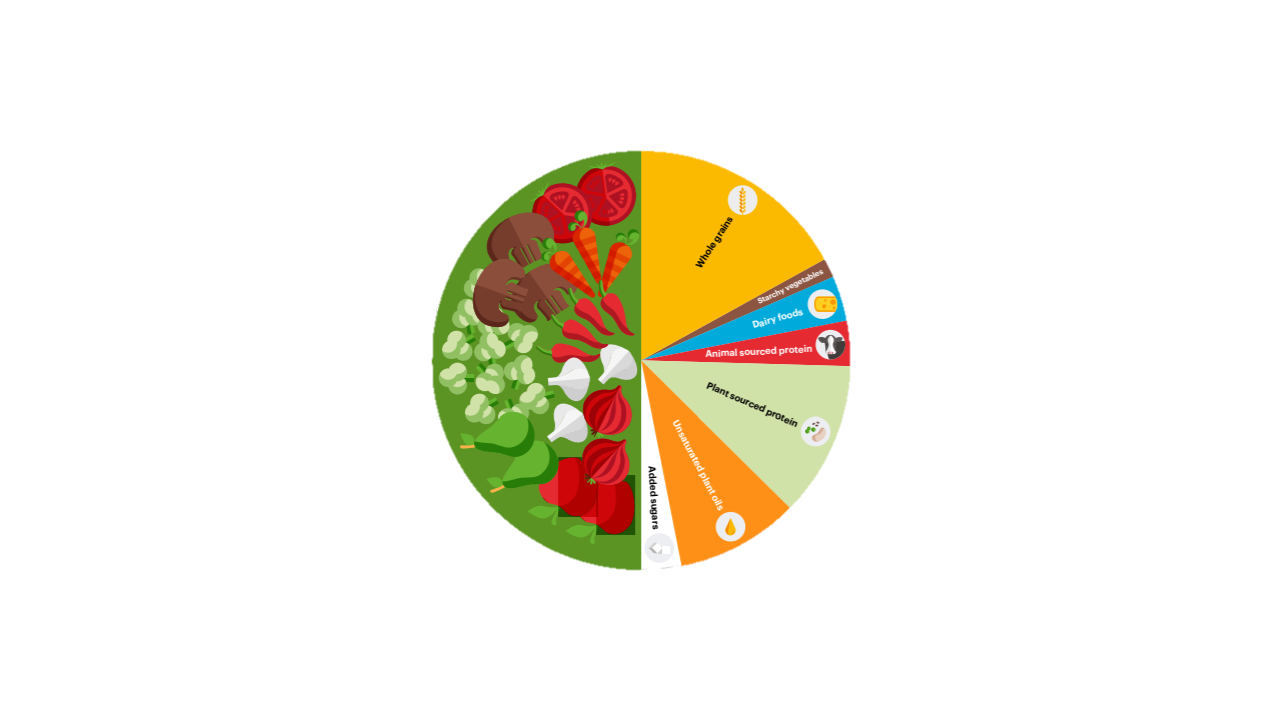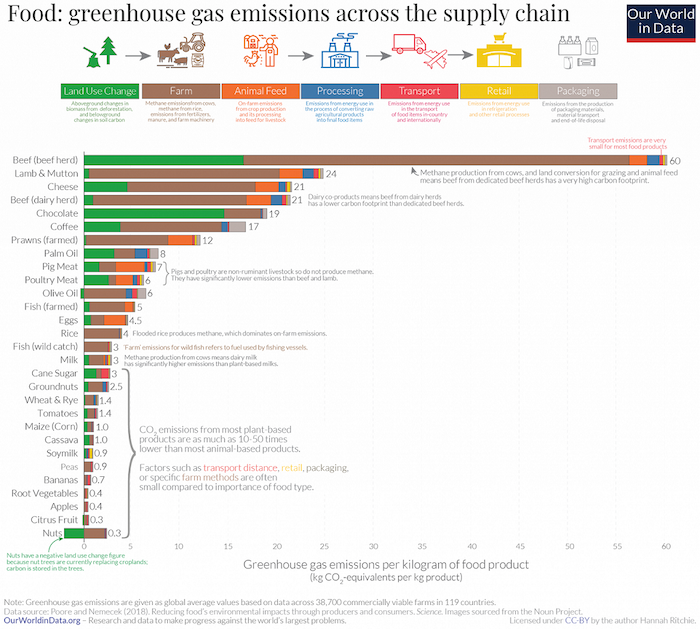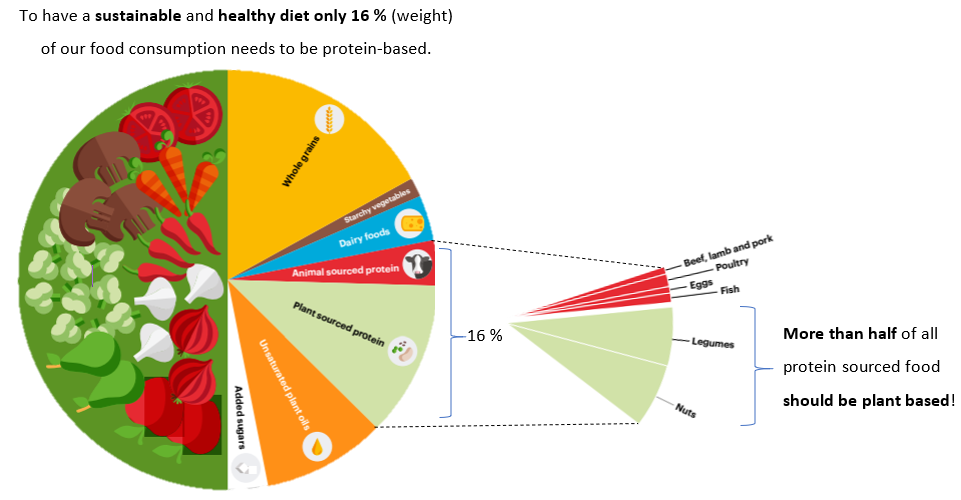Why you should reduce meat consumption in your diet



Changing your diet can make a big difference to your environmental footprint. In the next lines you will learn more about how your diet impacts climate change and how you can reduce that impact by adapting to a more sustainable and healthy diet.
Carbon footprint of beef is the highest (off all food)!
Cutting meat and dairy products could reduce an individual’s carbon footprint from food by 65%, according to a study from the University of Oxford, published by Poore and Nemecek (2018, Science). With these changes one does not only reduce pollution, but also saves water and reduces the loss of forests.
Did you know that one kg of beef produces 60 kg of CO2? In comparison, chicken only produces 6 kg and fish 5 kg.(Our world in data (table 2), Poore and Nemecek)

What is a sustainable and healthy diet?
According to the Summary Report of the EAT-Lancet Commission, only 16 % (weight) of food in your diet should be protein-based (either animal or plant based)!

To have a sustainable and healthy diet people should on average consume per month (see table 1, from Summary Report of the EAT-Lancet Commission):
- 420 g of beef or lamb (equivalent to of 14 g a day or 2 meals per month)
- 870 g chicken or other poultry (equivalent to 29 g a day or 4 meals per month)
Of course, these numbers can vary, as one can double the number of meals containing meat by reducing the amount of meat per meal to around 110 g - and enrich the plate by adding protein-based legumes and nuts to the plate.
On average, out of 90 meals a month (3-meals a day), only 20% (14 meals) should contain animal-sourced proteins (and only less than a third of the plate weight should be meat/fish).
In other words, we don’t all need to become 100% vegetarians. But, everyone should reduce their meals based on animal-sourced proteins to 20% of their total meals.
 From Table 1. Scientific targets for a planetary health diet, with possible ranges, for an intake of 2500 kcal/da.](/images/uploads/table1.png)
How much CO2 can you save by adapting your diet?
We calculated the amount of CO2 you can save by reducing your meat consumption.
A person with unsustainable diet eats per week (as protein source):
- 2 meals of Beef
- 4 meals of Chicken
- 2 meals of Fish
- 2 meals of Egg
- 2 meals of Legumes
- 2 meals of Nuts
This adds up to: 34.7 kg CO2 x 4 weeks = 138.8 kg of CO2
If this person would eat instead per week:
- 1 meal of Beef (every 2 weeks!) => 210 g / 2 * 60 kg CO2/kg
- 1 meal of Chicken => 210 g * 6 kg * CO2/kg
- 1 meal Fish => 210 g * 5 kg CO2/kg
- 1 meal of Egg => 100 g * 4.5 kg CO2/kg
- 5 meals of Legumes => 450 g * 1 kg CO2/kg
- 5 meals of Nuts => 330 g * 1 kg CO2/kg
This would add up to 13.26 kg CO2 x 4 weeks = 53.04 kg of CO2 monthly. This would reduce the food carbon footprint of this person from 138.8 kg to 53.04 kg, which means saving 85.8 kg of CO2 per month.
Conclusion
Transformation to healthy diets by 2050 will require substantial dietary shifts. Global consumption of fruits, vegetables, nuts and legumes will have to double, and consumption of foods such as red meat and sugar will have to be reduced by more than 50% (Summary Report of the EAT-Lancet Commission).
Knowing how and where your food is produced is also important, as the same food can have huge differences in environmental impact. For example, beef cattle raised on deforested land is responsible for 12 times more greenhouse gas emissions than cows reared on natural pastures (Poore and Nemecek (2018, Science).
A diet rich in plant-based foods and with fewer animal source foods confers both improved health and environmental benefits!
Climate Change App
If you want to start living a more sustainable life, our app - Changeit - gives you simple actions you can start taking now to reduce your CO2 footprint. We designed our app to help busy people that want to fight climate change.
We compiled all the information in easy-to-read actions and notifications that will help you adopt more sustainable behaviors without taking much of your time.
Start changing your habits today!
Written by : Carolina Freitas (PhD)
Linkedin profile
